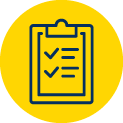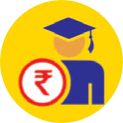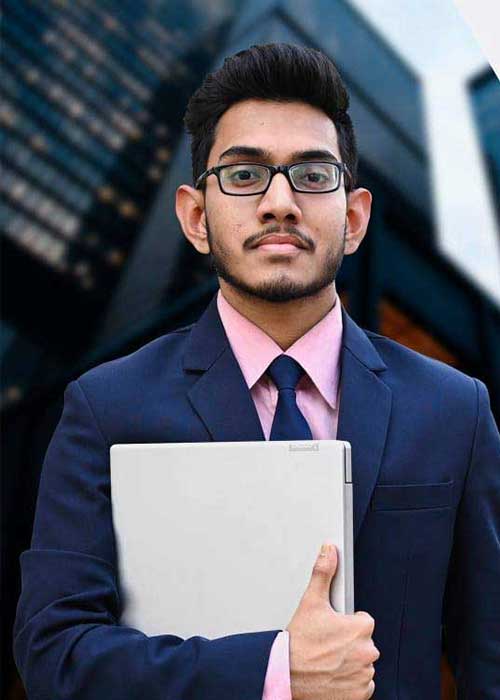Integrated B.Sc B.Ed Spl Ed (ID) Program
About the Program

The Department of Special Education and Rehabilitation offer 4 year Integrated B.Sc B.Ed Spl Ed (ID)
recognized by RCI. Considering the uniqueness of the program, there is no exit facility at the end of third year. Therefore,
every student should compulsorily complete four years once they decide to pursue this program
The objectives of B.Sc B.Ed Special Education Integrated program are:
- To develop holistic perspectives which will help to student teacher to understand special needs in the context of education and its relationship with society, culture, economy, polity and history.
- To inculcate in every student teacher a sense of responsibility towards the society and respect for human life and dignity.
- To develop their overall personality and enhance their abilities to address intricate and complex educational related problems.
- To develop inter-disciplinary enquiry and practical skills for implementing child centered pedagogy.
- To develop skills for collaboration with various stakeholders.
- To acquire competence to teach and train children with benchmark disability in schools.
Areas of Disability Covered
- Autism Spectrum Disorder
- Blindness
- Low Vision
- Locomotor Disability
- Cerebral Palsy
- Deaf blindness
- Hearing Impairment
- Intellectual Disability Specific Learning Disability, and
- Multiple Disability
Duration
4 Years (8 Semesters)
Eligibility

Candidates with at least 50% marks in the senior secondary / + 2 or its equivalent are eligible for admission,. Relaxation and reservation as per respective government norms.

Program Structure |
||
B.Sc.B.Ed.Spl.Ed.(ID) |
||
Year-I |
Semester-I |
Semester-II |
|
|
|
Year-II |
Semester-III |
Semester-IV |
|
|
|
Year-III |
Semester-V |
Semester-VI |
|
|
|
Year-IV |
Semester-VII |
Semester-VIII |
|
|
|
Note: The program structure may change marginally. The specific details will be given in the Student Handbook.
Certification as Registered Personnel
- It is mandatory for every rehabilitation professional / personnel to obtain a “Registered Personnel / Professional Certificate” from the Rehabilitation Council of India to work in the field of special education in India.
- As continuous professional growth is necessary for the renewal of the certificate, the rehabilitation professional / personnel should undergo in-service program periodically to update their professional knowledge.
Job Opportunities
General School /Special schools / integrated / Inclusive setup / Itinerant programers / CBSE School / Navodaya Vidyalaya /SSA/BRP.
Fee comprises of Admission Fee, Program Fee, Caution Deposit (Refundable), Hostel Fee and Hostel Deposit (Refundable) as per the details mentioned below:
Admission Fee
All candidates have to pay an Admission Fee of ₹ 20,000 for M.Phil in Clinical Psychology, MA Education, M.Ed, M.Ed Spl.Ed(ID), M.P.E.S, B.Ed, B.Ed Spl.Ed(ID), D.Ed Spl. Ed(ID), B.P.Ed, B.P.E.S, BPES(Lateral) and D.P.Ed, Integrated B.A/B.Com/B.Sc/B.ED.SPL.ED towards the confirmation of admission.
Program Fee
Students should pay the fee mentioned in the table below at the beginning of each semester as per the due dates indicated in the student Handbook.
| Particulars | Integrated B.Sc B.Ed Spl Ed (ID) Program | ||
| Fee Per Semester (Rs.) | (D*) 31,000 | (ND*) 35,000 | |
| Total program fee (Rs.) | 124,000 | 140,000 | |
Domicile: Students belonging to the North-East States@;
Non-Domicile: Students from States other than North-East States.
@ (North East States: Arunachal Pradesh, Assam, Manipur, Meghalaya, Mizoram, Nagaland, Sikkim and Tripura).
All students are required to pay a caution deposit of ₹ 10,000 along with the fi rst semester fee. The caution deposit will be refunded without interest and after adjusting for dues, if any, to the students on completion of the program. In case of those who leave the ICFAI University, Tripura for any other reason, it will be refunded after adjusting for dues, if any.
₹ 1,500 to be charged in the 1st year 2nd semester (One-time payment)
₹ 1,000 to be paid in two installments (₹ 500 each) in last 2 semesters of the program.
(Note: Student Activity Fund and Alumni Fee will not be applicable for certificate programs.)
Transportation facility is provided from city to campus on payment basis.
| Hostel Fee per semester | ₹ 17,000 per semester for 1st year. Subsequent years fee will be communicated before the commencement of the academic year. |
| Hostel Deposit (Refundable) | ₹ 10,000 |
| Mess Charges | Actual cost will be work out in consultation with Mess Committee. |
All payments can be made by using Credit/Debit card or by Internet Banking. Students can also pay by way of Bank Demand Draft drawn on Scheduled Bank in favor of “The ICFAI University, Tripura - Fee Collection A/c” payable at Agartala, Tripura.
-program.jpg)